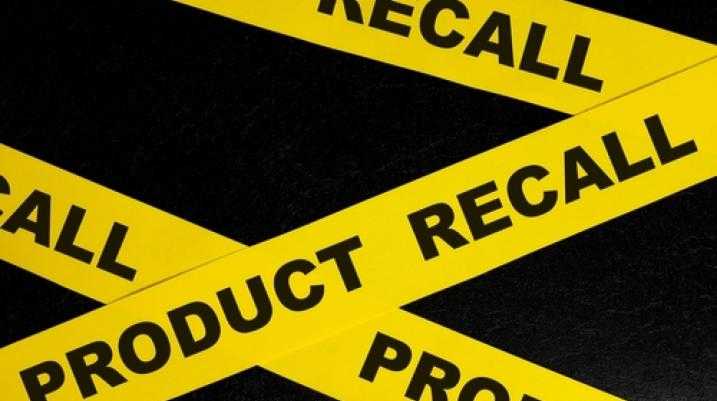U.S. Product Recalls Hit Four-Year High in the First Quarter of 2023

According to the data collected by Sedgwick brand protection from the first quarter of 2023 in the United States, when compared to the previous quarter, they found a 14.2% increase in the amount of product recalls. Sedgwick is the market-leading provider of best practice product recall and remediation solutions–and according to their most recent U.S. product recall index report that analyzes data from five key industries, they discovered that this quarter marks the highest single-quarter total in four years.
After 2022 held for a second consecutive year of record-breaking numbers of units recalled, stakeholders have been closely watching to see if 2023 would follow suit yet again and produce record-breaking recalls. However, the data collected from the first quarter of 2023 showed that the numbers actually fell by 21.6%, lagging far behind the number of units recalled by this time in 2022. While the numbers are low now, there are still three quarters left of the year that have yet to be reported. With standards of products rising among consumers, there is still a chance for 2023 to continue the trend, with it currently running with over 1 billion recalled units.
The Sedgwick's Index Reports
As mentioned, Sedgwick offers the industry-leading recall index report, which provides an in-depth analysis of the latest product recall data. Every quarter, their report includes information from safety regulations and critical challenges for the automotive, consumer products, food and beverage, medical device, and pharmaceutical industries. Their index features analysis and perspective from Sedgwick's brand protection experts and network of strategic partners.
The index is crucial in helping mitigate recall risks, litigations, and reputational damages caused by product crises and in-market events. We have collected some highlights from Q1 2023 product recall data from the quarterly index, as well as the projections, which you can find listed below.
The Q1 2023 Highlights
- Automotive recalls increased by 3.4% to 245 events. Leading causes include electrical systems with 48 events, equipment with 46, and airbags with 17.
- With 94 events, the consumer product industries recorded the most recalls in a single quarter since Q3 2015. The number of units recalled significantly increased from the previous quarter by 442.1% to 23.1 million units.
- The U.S. Food and Drug Administration (FDA) recalls increased by 23.2% with 117 events. However, the number of units impacted decreased by 78.7% to 39.3 million. Compared to the U.S. Department of Agriculture (USDA), whose recalls remained the same at 11 events, even as the number of pounds recalled increased by 1,129% to 2.9 million.
- Medical device recalls increased by 4.6% to 252 events. While manufacturing defects accounted for the most significant proportion with 59 events. Quality concerns were the leading cause of units impacted, with 68.5 million or 82.3% of all recalled medical devices.
- Q1 2023 marked the most pharmaceutical recalls in a single quarter, with 144 events. The number of impacted units increased by 1,071.8% to 49.5 million.
The 2023 Projections
- Further into 2023, they predict that technological advancements and the increase of electric vehicles will push regulators to move quickly to ensure that cars equipped with the latest features are safe for the road.
- The U.S. consumer product industry will continue to see strict regulatory enforcement from the Consumer Product Safety Commission (CPSC) and the Federal Trade Commission (FTC). The CPSC will likely continue its practice of issuing civil penalties and public efforts to pursue remedies from manufacturers. In order to align with the new and more aggressive enforcement strategies from the CPSC, manufacturers will need to update their recall communication plans.
- The FDA has outlined topics it will tackle in 2023, including allergens, dietary supplements, food additives, and other topics related to the Food Safety Modernization Act (FSMA) and labeling.
- The infant formula industry is also up for discussion, as the FDA has issued an update and sent a letter to stakeholders encouraging them to improve their processes and implement the programs it outlined quickly.
- The FDA is working on improving the supply chain and preventing shortages with a higher allocation for related programs for the medical device industry in its draft budget for FY2024.
- The FDA is testing two pilot programs implementing digital solutions for new product submissions and enhancing stakeholder communications. Improving cybersecurity and protecting patients from cyber threats and their consequences will also be moved up on the list for the FDA and device manufacturers.
- Now that the COVID-19 public health emergency is officially over, pharmaceutical companies must be mindful of the changes in areas like drug distribution, clinical trials, and oversight.
- The FDA will focus on Cannabis and tobacco products, continuing its research on the medical uses of cannabidiol. It will also propose tighter regulations around the manufacture of tobacco products.
Chris Harvey, the Sedgwick senior vice president of brand protection, believes that as the number of recall events continues to increase, the risks to manufacturers grow more serious. Now that there is an increase in regulatory enforcement and a more publicized recall process, regulators are working to help prioritize product safety while also balancing innovation. As predicted in the 2023 index, businesses will need to keep up with the current changes and stay prepared for any changes down the road.
If you believe that you or someone you love has been injured by a defective product, contact us today or complete our free case review.
Injured? Getting the compensation you deserve starts here.

Injured?
Not sure what to do next?
We'll guide you through everything you need to know.